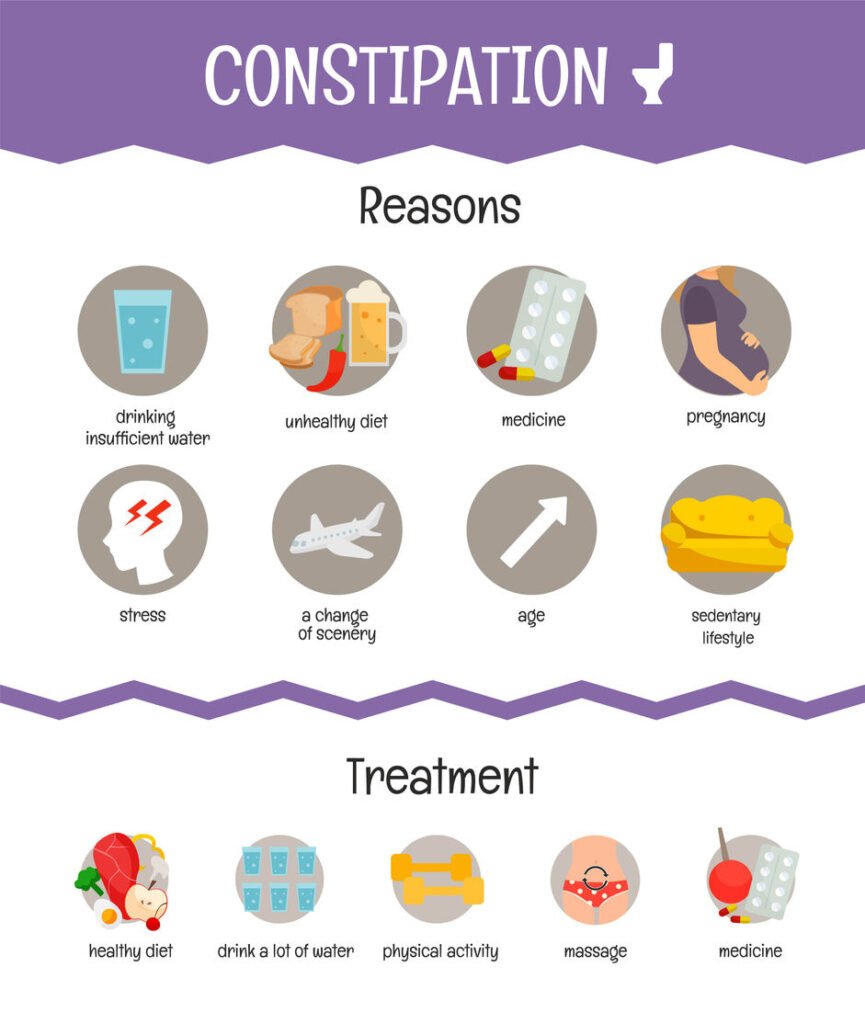Yes, travel can cause constipation due to changes in routine, diet, and dehydration. It’s important to be aware of these potential effects and take preventive measures to avoid discomfort during your travels.
Traveling is an exciting experience, but it can also lead to digestive issues such as constipation. Changes in routine, diet, and dehydration can all contribute to this uncomfortable condition while on the go. Whether you’re traveling for business or pleasure, it’s essential to be proactive in managing your digestive health to ensure a smooth journey.
We’ll explore the potential causes of constipation during travel and provide practical tips for preventing and alleviating this common issue. By implementing these strategies, you can focus on enjoying your adventures without the distraction of digestive discomfort.
Table of Contents
ToggleExploring The Relationship Between Travel And Constipation
Explore whether travel can trigger constipation, pondering the potential impact on digestive health during journeys. Discover strategies to alleviate discomfort and embrace healthier habits while on the go. Unearth the intricate relationship between travel and gastrointestinal wellness.
Traveling is an exciting experience that can broaden our horizons and create lasting memories. However, it’s not uncommon to encounter certain challenges along the way, including digestive issues like constipation. The relationship between travel and constipation is a topic worth exploring, as it can help us better understand why this uncomfortable condition may occur during our journeys. In this article, we’ll delve into the causes of constipation during travel and the contributing factors that can potentially lead to this inconvenience.
Causes Of Constipation During Travel
Understanding the causes of constipation during travel is key to finding ways to prevent and manage this issue. Here are some common factors that can contribute to travel-induced constipation:
- Changes in routine and schedule: Travel often disrupts our usual daily routines, including meal times and bathroom habits. These changes can affect the regularity of bowel movements and lead to constipation.
- Inadequate hydration: Dehydration is a common concern during travel, especially if we fail to drink enough water. Lack of proper hydration can contribute to constipation by making the stools harder and more difficult to pass.
- Dietary changes: Trying new foods and eating different cuisines while traveling can sometimes result in a lack of dietary fiber. Fiber plays a crucial role in promoting regular bowel movements, and its deficiency can contribute to constipation.
- Sedentary lifestyle: Lengthy periods of sitting while traveling by car, plane, or train can lead to decreased physical activity. Reduced mobility can slow down digestion and contribute to the onset of constipation.
Factors Contributing To Travel-induced Constipation
While the causes mentioned above can be contributors to travel-induced constipation, certain factors can also exacerbate this condition. These additional factors may intensify the risk of constipation during your travels:
| Factors | Description |
|---|---|
| Lack of privacy | Unfamiliar environments, such as shared hostel bathrooms or public restrooms, can make it difficult for some individuals to relax and properly evacuate their bowels. |
| Stress and anxiety | Traveling can sometimes be stressful or anxiety-inducing. These emotional states can impact digestion and contribute to constipation. |
| Medication and dietary supplements | Some medications and dietary supplements can have side effects that include constipation. If you’re taking any prescribed drugs or supplements, consult your healthcare provider to manage their impact while traveling. |
Understanding these factors and how they relate to travel-induced constipation can help you take proactive measures to prevent or manage this discomfort while on the go. Stay tuned for our upcoming blog posts as we dive deeper into practical tips and remedies for avoiding constipation during your travels.
Prevention And Management Strategies
Travel may lead to constipation, but there are prevention and management strategies to alleviate this issue. By staying hydrated, consuming fiber-rich foods, and maintaining physical activity, you can ease the discomfort and promote regular bowel movements during your travels.
Prevention and Management Strategies Traveling can disrupt your routine and lead to constipation. However, there are several prevention and management strategies to help alleviate this issue. By making simple adjustments to your hydration, diet, exercise, and medications, you can minimize the likelihood of experiencing constipation while traveling.Hydration And Dietary Considerations
Maintaining proper hydration is crucial for preventing constipation. Drink plenty of water throughout your travels to keep your digestive system functioning optimally. Avoid excessive consumption of diuretic beverages such as caffeinated and alcoholic drinks, as these can contribute to dehydration and constipation. Increase your intake of high-fiber foods such as fruits, vegetables, and whole grains to promote healthy bowel movements.Exercise And Movement Tips
Engaging in regular physical activity while traveling can help stimulate bowel movements and prevent constipation. Incorporate brief walking breaks during long journeys to keep your body active. Stretching and performing simple exercises, such as leg lifts and knee bends, can also promote intestinal motility. Avoid prolonged periods of sitting or inactivity, as these can contribute to decreased bowel movements and constipation.Medications And Remedies For Constipation
If you are prone to constipation while traveling, consider bringing along medications or remedies to address this issue. Over-the-counter laxatives can provide relief from constipation, but it’s essential to use them judiciously and according to the recommended dosage. Additionally, herbal remedies such as senna or fiber supplements can help regulate bowel movements. Consult with a healthcare professional before using any new medications or remedies, especially if you have preexisting medical conditions or are taking other medications. By implementing these strategies, it is possible to mitigate the impact of travel on your digestive system and reduce the likelihood of experiencing constipation. Prioritize hydration, dietary adjustments, physical movement, and consider using appropriate medications or remedies to maintain regular bowel function while on the go.Impact On Different Age Groups
Traveling can affect different age groups differently when it comes to constipation. The change in routine, diet, and activity levels can lead to this issue. It’s important to stay hydrated and maintain a balanced diet to minimize the impact of travel on digestion for all age groups.
Impact on Different Age Groups Children and Constipation while Traveling For children, changes in routine and dietary habits during travel can lead to constipation. New foods, irregular eating times, and inadequate hydration can disrupt their digestive system, causing constipation. To help prevent this, parents can encourage their children to consume fiber-rich foods and maintain adequate hydration during travels. Encouraging physical activity can also support regular bowel movements for children while traveling. Adults: Coping with Travel-Related Constipation Travel-related constipation often arises in adults due to dietary changes, stress, and reduced physical activity. To mitigate this, adults can take proactive measures such as consuming a high-fiber diet, staying well-hydrated, and making time for regular physical activity during travel. Additionally, incorporating stress-reducing techniques and maintaining a consistent meal schedule can help alleviate the risk of constipation while on the go. Elderly and Travel Induced Constipation Risks Elderly individuals are more susceptible to constipation during travel due to factors such as medication side effects, mobility limitations, and underlying health conditions. It is essential for seniors to be mindful of their medication schedule, prioritize adequate hydration, and engage in gentle physical activity while traveling to reduce the risk of constipation. Consulting with a healthcare professional for tailored advice can also be beneficial for elderly individuals managing constipation during travel.
Credit: www.medicalnewstoday.com
Specific Travel Scenarios And Their Effects
Travel can sometimes cause constipation due to changes in routines, diet, and activity levels. This can be exacerbated by dehydration and stress. Sitting for extended periods during travel can also contribute to constipation. It’s important to stay hydrated, maintain a healthy diet, and stay active while traveling to mitigate these effects.
Can Travel Cause Constipation? Specific Travel Scenarios and Their Effects Air Travel and Constipation Risks Air travel has become an increasingly common mode of transportation, allowing people to explore the world more easily. However, it can also have its own set of challenges, including potential constipation risks. The combination of high altitudes, minimal physical activity, and limited access to healthy food options can contribute to digestive issues during air travel. Additionally, dehydration becomes more prevalent due to the dry air in airplane cabins. These factors can slow down digestion and lead to constipation. Road Trips and Gastrointestinal Issues Road trips are synonymous with adventure and freedom. However, the extended periods of sitting and irregular meal times can disrupt bowel movements and cause gastrointestinal issues. When traveling by road, people often rely on convenience foods that are high in sodium, unhealthy fats, and low in fiber. This lack of dietary fiber can lead to constipation. Additionally, long periods of sitting in a car can slow down the digestive system, further exacerbating the issue. Cruise Travels and Digestive Challenges Cruise travels are a popular choice for vacationing, offering luxurious amenities and the opportunity to visit multiple destinations. However, being confined to a ship for an extended period can pose digestive challenges. On cruise ships, people are often tempted by indulgent food options, such as buffets and all-you-can-eat dining experiences. These foods are typically high in unhealthy fats and low in fiber, which can contribute to constipation. Additionally, the motion of the ship can disrupt the normal functioning of the digestive system, causing discomfort and digestive issues. In conclusion, different travel scenarios can have varied effects on our digestive system, potentially leading to constipation. Air travel, road trips, and cruise travels all come with their own set of challenges that can disrupt the normal functioning of our digestive system. Understanding these risks and taking appropriate measures, such as staying hydrated, maintaining a balanced diet, and incorporating physical activity, can help mitigate the effects and ensure a smoother journey.Psychological Factors And Travel-induced Constipation
Travel-induced constipation can often be attributed to various psychological factors that impact our digestive system. Stress and anxiety play a significant role in disrupting gut health during travel, leading to discomfort and irregular bowel movements.
stress And Anxiety Impact On Digestive System
High stress levels can hinder normal digestive processes, resulting in constipation while traveling.
Mood And Emotions’ Influence On Gut Health
Our emotions directly impact gut health, affecting the regularity of bowel movements.

Credit: www.ncdhp.com

Credit: www.medicalnewstoday.com
Frequently Asked Questions Of Can Travel Cause Constipation
How Long Does Travel Constipation Last?
Travel constipation can typically last for a few days, but it varies from person to person. It is caused by changes in routine, diet, and limited physical activity during travel. Drinking plenty of water, eating fiber-rich foods, and staying active can help relieve constipation while traveling.
How Do You Fix Travelers Constipation?
To fix travelers constipation, stay hydrated, eat fiber-rich foods, and move around frequently. Avoid caffeine and alcohol.
Does Traveling Mess With Your Bowels?
Traveling can disrupt bowel habits due to changes in routine, diet, and stress levels. It’s common to experience constipation or diarrhea while on the go. Staying hydrated, eating fiber-rich foods, and managing stress can help maintain regular bowel movements during travel.
Do You Get Constipated When Travelling?
Yes, traveling can cause constipation due to changes in routine, stress, and dietary changes. To prevent it, stay hydrated, consume fiber-rich foods, and exercise regularly.
Conclusion
Traveling can disrupt our routine, including our digestive system. The combination of dietary changes, stress, and prolonged sitting during travel can contribute to constipation. Staying hydrated, eating fiber-rich foods, and incorporating exercise into your travel itinerary can help alleviate constipation.
Remember to listen to your body and maintain a healthy lifestyle even when on the go. Safe and enjoyable travels!



